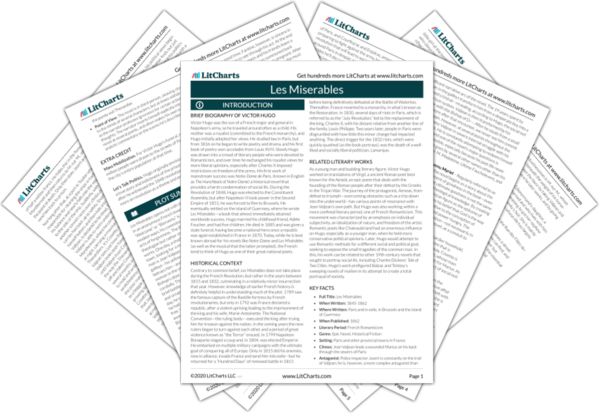Charles-François-Bienvenu Myriel Quotes in Les Miserables
Volume 1, Book 1 Quotes
“The guilty one is not the person who has committed the sin, but the person who has created the shadow.”
“Let us never fear robbers nor murderers. Those are dangers from without, petty dangers. Let us fear ourselves. Prejudices are the real robbers; vices are the real murderers. The great dangers lie within ourselves.”
Volume 2, Book 4 Quotes
Only, as he was five and fifty, and Cosette eight years of age, all that might have been love in the whole course of his life flowed together into a sort of ineffable light. It was the second white apparition which he had encountered. The Bishop had caused the dawn of virtue to rise on his horizon; Cosette caused the dawn of love to rise.

Charles-François-Bienvenu Myriel Quotes in Les Miserables
Volume 1, Book 1 Quotes
“The guilty one is not the person who has committed the sin, but the person who has created the shadow.”
“Let us never fear robbers nor murderers. Those are dangers from without, petty dangers. Let us fear ourselves. Prejudices are the real robbers; vices are the real murderers. The great dangers lie within ourselves.”
Volume 2, Book 4 Quotes
Only, as he was five and fifty, and Cosette eight years of age, all that might have been love in the whole course of his life flowed together into a sort of ineffable light. It was the second white apparition which he had encountered. The Bishop had caused the dawn of virtue to rise on his horizon; Cosette caused the dawn of love to rise.











